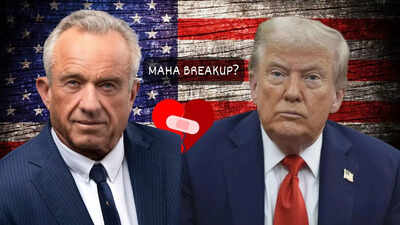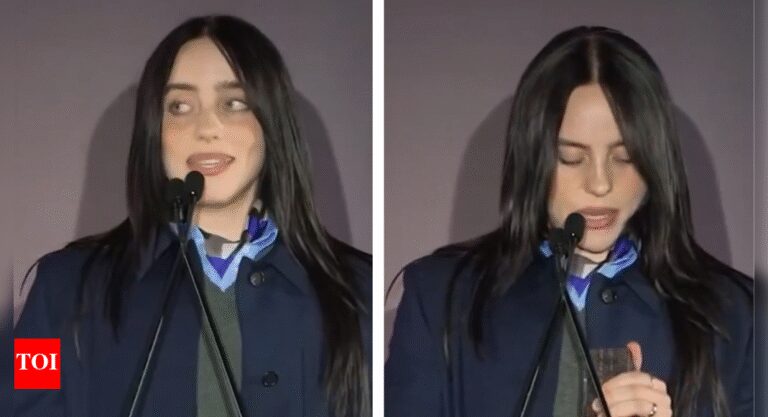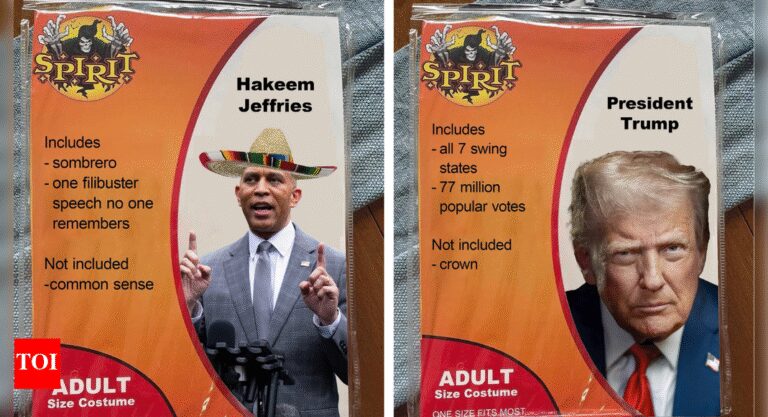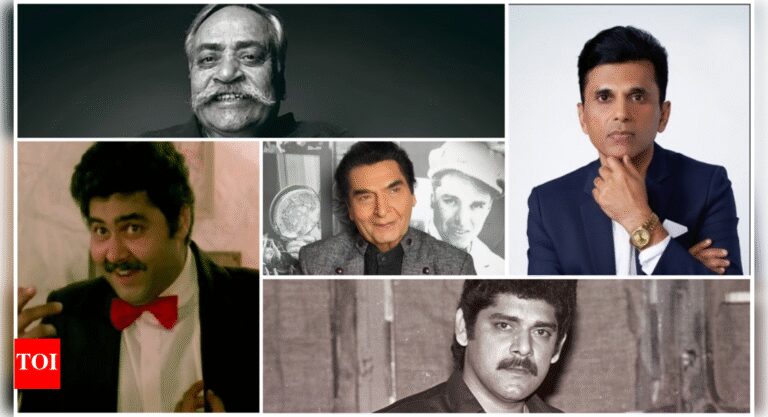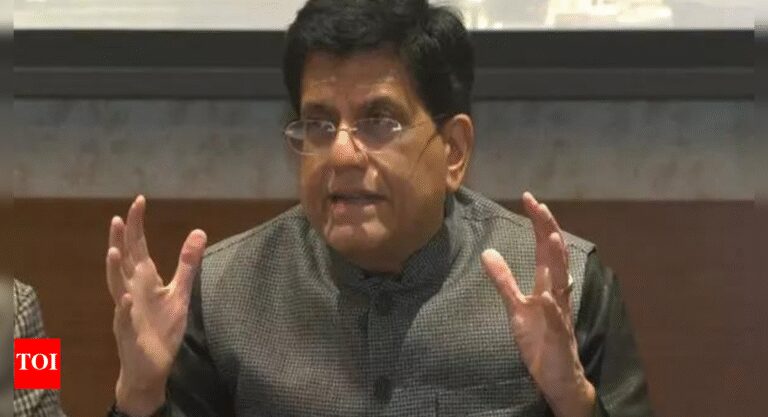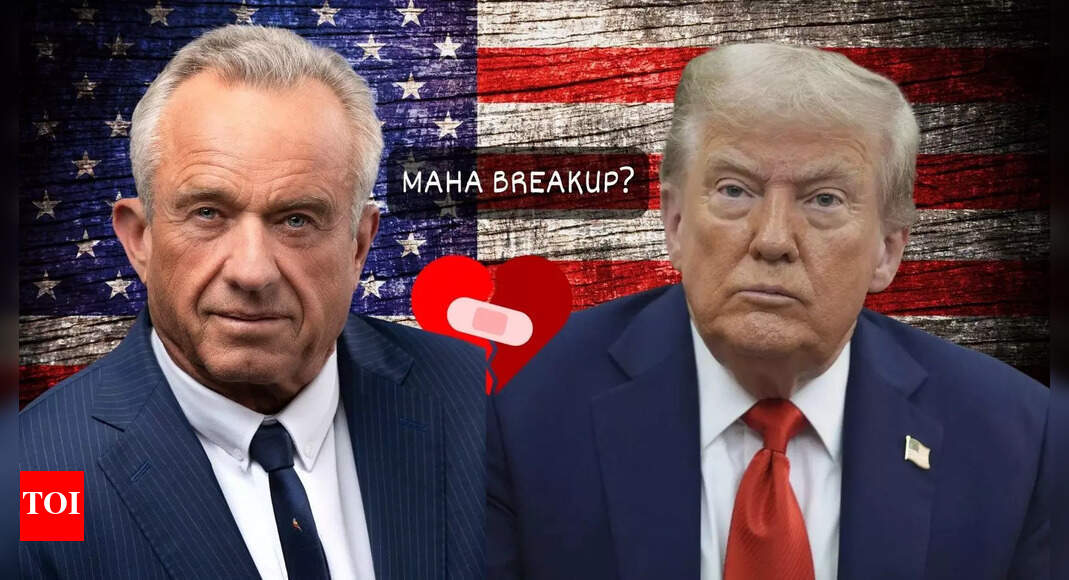
For a man who’s built a career questioning every pillar of modern medicine, it was almost biblical to see Robert F. Kennedy Jr. walk up to a podium and defend Tylenol. The US Health Secretary — and high priest of the “Make America Healthy Again” movement — told reporters this week that data does not show acetaminophen, the active ingredient in Tylenol, definitively causes autism. “The association is suggestive,” he said, “but not sufficient.”To anyone else, that’s science being cautious. Coming from Kennedy — the man who turned vaccine scepticism into a religion — it was closer to apostasy. Especially since his boss, President Donald Trump, had already gone full televangelist a month earlier, declaring that pregnant women should avoid Tylenol altogether because it “causes autism.” Trump, of course, cited no data, no doctor, and no deity beyond himself.But Kennedy’s carefully hedged words marked a strange new moment in American politics: the prophet of paranoia had, for once, become the voice of restraint.
The Church of MAHA
Kennedy’s reversal isn’t just a policy clarification — it’s a theological crisis for the cult he helped build. MAHA, or Make America Healthy Again, began as a wellness rebellion against the pharmaceutical-industrial complex and metastasised into a populist faith. Its scripture blended organic food evangelism with pandemic-era distrust. Its sacraments were beef tallow, kale smoothies, and vaccine refusal. Its choir sang in Facebook groups about fluoride conspiracies and detox juice cleanses.In the world of MAHA, Big Pharma is Lucifer, Bill Gates is the Antichrist, and every government-funded study is scripture rewritten by the enemy. The movement’s followers — “MAHA moms,” suburban apostles in yoga pants — treat Kennedy not as a bureaucrat but as a saint who saw through the lies of the medical cabal. He speaks in the language of revelation: “toxins,” “heavy metals,” “DNA corruption.”So when he says Tylenol might not cause autism, it’s like the Pope announcing that purgatory was a typo.
Enter “Dr” Donald Trump

President Donald Trump listens during a meeting with Polish President Karol Nawrocki in the Oval Office of the White House, Wednesday, Sept. 3, 2025, in Washington. (AP Photo/Evan Vucci)
Of course, no American crusade against science is complete without its chief showman. Trump’s transformation into “Dr Donald” began long before his Tylenol sermon. During his first term, he hawked hydroxychloroquine as a “game-changer,” blessed ivermectin as “the people’s cure,” and prescribed sunlight and bleach for Covid. If Kennedy gave the anti-science movement its theology, Trump gave it its stagecraft — a megachurch of disbelief with himself as pastor.So when he declared in September that Tylenol causes autism, he wasn’t offering a medical opinion. He was preaching to his base’s collective suspicion of everything labelled “official.” In his world, being “wrong” isn’t a flaw; it’s proof of authenticity.The fact that his own Health Secretary publicly contradicted him would, in a rational universe, count as humiliation. But in the post-truth temple of MAGA, even contradiction can be baptised as loyalty — Kennedy, after all, was only “asking questions.”
America’s Long Love Affair with Quackery
Blaming Trump for America’s medical madness is like blaming McDonald’s for obesity. The appetite was always there. The republic was born suspicious of experts — a nation built by revolutionaries who distrusted elites and sanctified common sense. From snake-oil salesmen to miracle tonics, from televangelists peddling holy water to Silicon Valley biohackers, America has always confused science with sorcery and health with hustle.The internet merely weaponised it. Covid made it mainstream.And then came MAHA — the perfect fusion of wellness culture and populism. What began as anxiety about “toxins” in food became a rebellion against everything: medicine, research, even reality. When Kennedy took over the Department of Health and Human Services, that rebellion got its first marble office.
The Collapse of Scientific Credibility
It’s easy to mock the Tylenol panic until you remember why it works. The American public didn’t lose faith in science overnight. It was slowly eroded — by overconfidence, censorship, and the moralising zeal of the very institutions meant to defend truth.When the pandemic hit, “trust the science” became a slogan instead of a principle. Masks first didn’t work, then did. Vaccines were supposed to stop transmission, then merely reduce death. Questions about lab leaks were dismissed as racist until they weren’t. Every backtrack felt less like honesty and more like betrayal.And outside medicine, the story was the same. Climate scientists oscillated between apocalypse and optimism. Academics couldn’t define a woman without a footnote. The very language of science became tribal, cautious, performative. For ordinary Americans, “expert” began to sound like “liar with a PhD.”So when Trump thundered about Tylenol, or Kennedy mumbled about autism, millions nodded along — not because they understood the data, but because they recognised the distrust.
The Painkiller and the Priest
Kurt Vonnegut once said that Karl Marx called religion the “opium of the masses” not as an insult but as compassion — back in the 1840s, opium was literally the only painkiller for the poor. In that sense, belief eased pain when science could not.Trump and Kennedy have simply reversed the roles. If religion once numbed suffering, now science is the opium — a brand name peddled by elites, distrusted by the faithful. The irony is exquisite: Kennedy, who once made a career railing against “Big Pharma,” now finds himself defending a pharmaceutical drug against his own congregation’s superstition.Tylenol, it turns out, is not just a painkiller. It’s a mirror. It reflects how America has medicalised its politics and politicised its medicine — how trust itself has become the rarest prescription.
The Final Diagnosis
RFK Jr. may have contradicted Trump, but he also exposed him. The “science wars” of modern America aren’t really about data or medicine. They’re about identity — who to believe, who to fear, and who gets to tell you what hurts. Trump doesn’t need facts; he needs faith. Kennedy doesn’t need evidence; he needs believers. Between them, they’ve built a ministry of misinformation where doubt is doctrine and every press conference is a sermon.So yes, the Health Secretary is right — Tylenol doesn’t cause autism. But it does reveal a deeper sickness: a civilisation addicted to conspiracies, allergic to nuance, and utterly incapable of trusting anyone in a lab coat. And perhaps that’s the real diagnosis of “Dr” Trump’s America — a country that no longer takes its medicine, only its myths.

